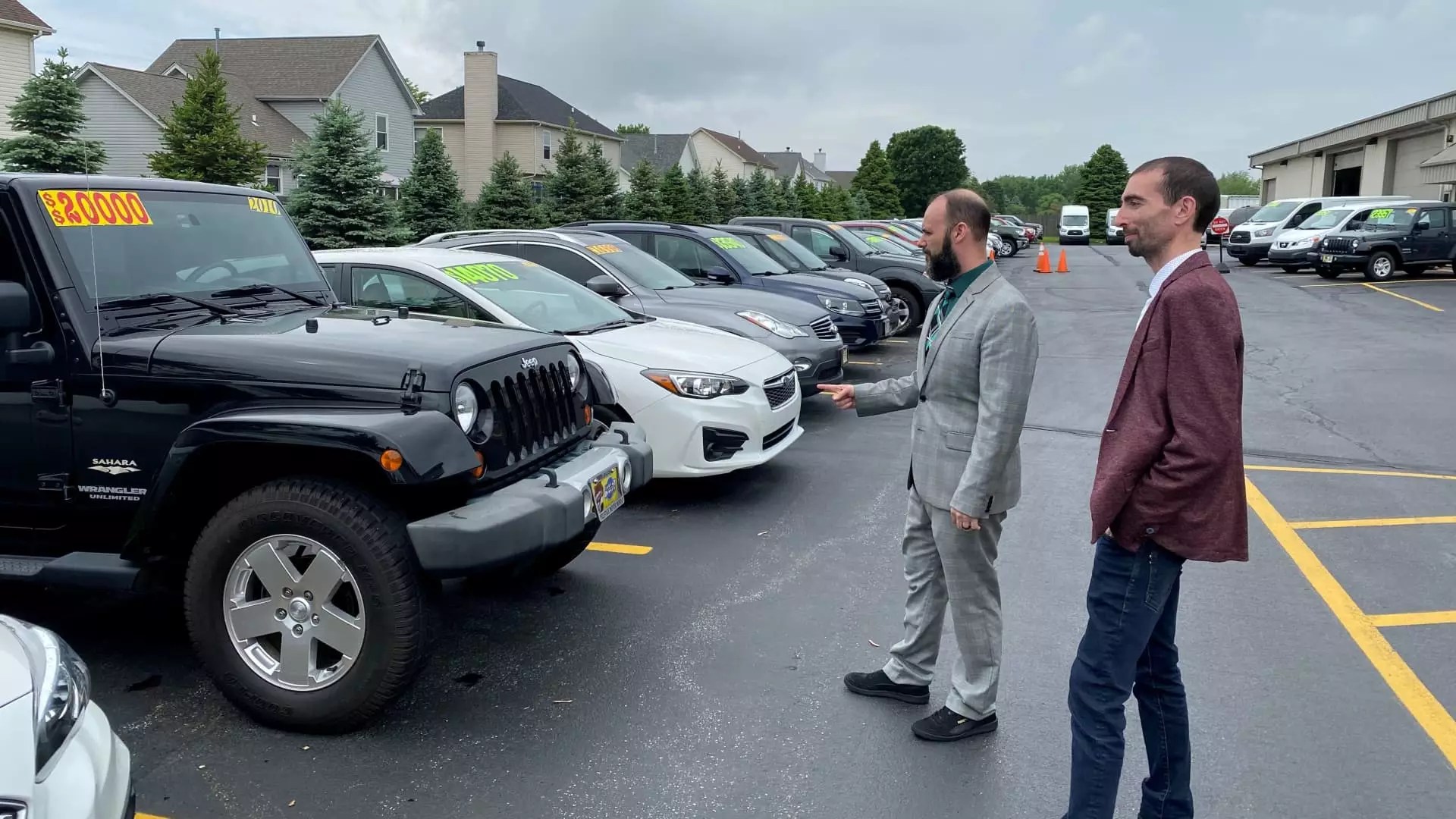As we transition into 2025, a wave of optimism appears to sweep through the U.S. automotive dealership landscape, largely ignited by political changes and encouraging economic indicators. The recent report published by Cox Automotive highlights this invigorated sentiment among car dealers. With President-elect Donald Trump set to resume the reins of leadership, many in the industry feel buoyed by the potential for positive fiscal measures and regulatory changes. However, beneath this veneer of optimism lies a significant concern regarding electric vehicle (EV) sales, reflecting the complex dynamics dealers are grappling with.
Cox Automotive’s “Q4 2024 Dealer Sentiment Index” indicates a marked shift in optimism, with the index score rising to 54 in the final quarter of the year, up from a previous score of 42. This upswing suggests that more dealers are taking a positive stance on the auto market’s future, a substantial increase compared to the lower levels recorded just a year prior. The political landscape, particularly the resolution of uncertainties following the presidential election, has evidently contributed to this renewed confidence.
Nonetheless, while dealers express optimism about general market conditions, they simultaneously voice apprehensions regarding the EV sector. The sentiment index discovered that many dealers foresee a decline in EV sales in the upcoming months, raising alarms about an industry segment that is pivotal for long-term sustainability and innovation in the automotive world. The fear that upcoming policies may threaten consumer incentives for EV purchases only compounds these worries.
The report notably reveals that a majority feel disheartened about the trajectory of electric vehicle sales. Factors such as potential cuts to the existing tax credits, which currently offer consumers up to $7,500 for purchasing electric vehicles, loom large in dealers’ assessments. This could stymie the growth of EV sales, undermining the efforts to transition towards a more sustainable automotive ecosystem. Furthermore, dealers harbor unease that the new administration might dial back environmentally focused regulations, creating a landscape where the commitment to EV technology lacks the governmental support needed for widespread adoption.
Jonathan Smoke, Cox’s Chief Economist, emphasized the crucial role tax incentives play in both new and used EV markets, suggesting that any political moves reducing these credits could drastically alter the market dynamics. This fluctuating outlook poses a fundamental dilemma for dealers, who must navigate the dichotomy of optimism in the broader market while facing challenges in the EV arena.
Despite the lurking uncertainties regarding EV sales, the performance of traditional automotive dealerships has been promising. Major players such as AutoNation and Lithia Motors have witnessed their stock prices rise significantly over the past year, with gains ranging from 15% to 22%. This indicates that while the market for electric vehicles may be wobbly, the demand for traditional vehicles remains robust.
The performance of Group 1 Automotive stands out even more, boasting an impressive stock increase of roughly 40% in 2024. These figures highlight that while there are significant transitions underway, traditional markets still hold considerable weight in the dealer sentiment and overall automotive landscape.
As dealers look toward the immediate future, the consensus reflects a tempered optimism strengthened by recent political developments and favorable economic transitions. Polls show that a decreasing number of dealers perceive the political environment as a detrimental force. Post-election, only 35% of dealers indicated that politics were influencing their business adversely—a notable decrease from prior quarters.
Nevertheless, with EV sales still hanging in the balance, the path forward is littered with uncertainties and challenges. While the immediate landscape may feel more secure, the auto industry must balance its excitement over potential growth against the pressing need to address the rising demand for electric vehicles. Whether this renewed optimism translates into substantial long-term gains remains to be seen as the market and policy environments evolve in 2025 and beyond.


Leave a Reply